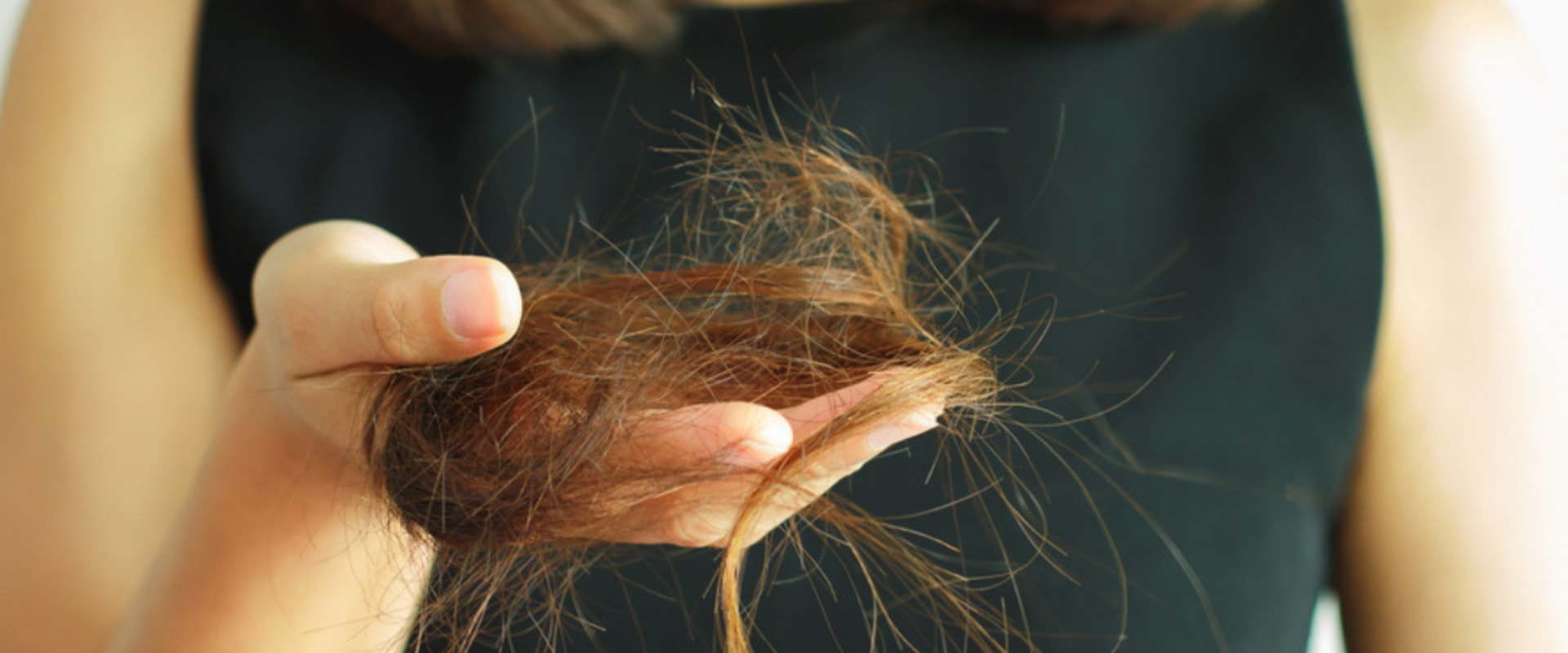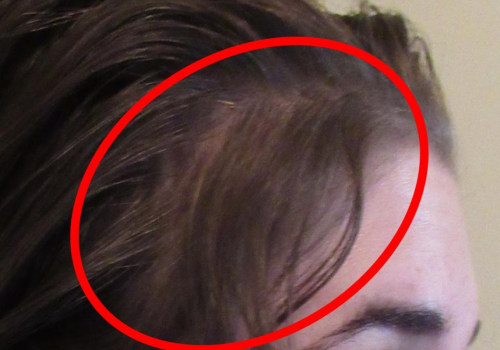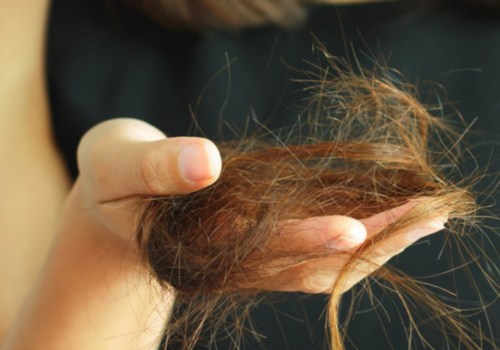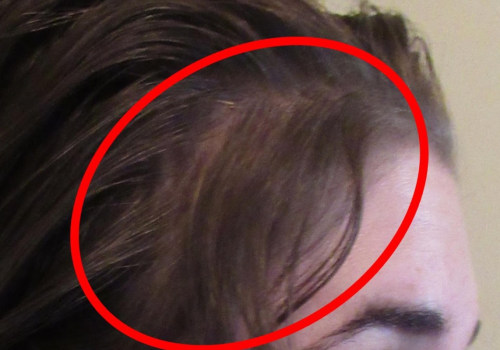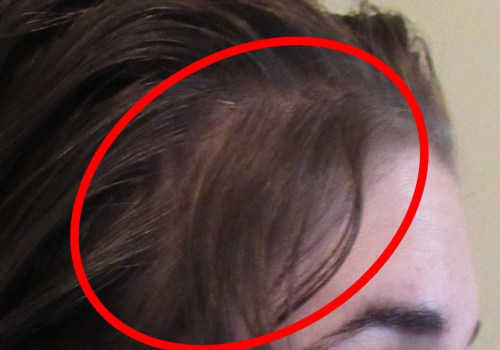These deficiencies, especially if maintained over a period of time, can lead to a type of hair loss called telogen effluvium. The good news is that this condition is usually reversible, so adopting healthier, less restrictive eating habits will allow hair to grow back. Weight loss and nutrient deficiencies associated with restrictive diets are also linked to other types of hair loss. These include chronic ET, which lasts longer than 6 months, and androgenic alopecia, also known as male or female pattern baldness (.
Fortunately, the effects of malnutrition on the hair are reversible as long as you regain nutritional stability for 6 months or more. Once the deficiencies are corrected, the hair will grow back, although it may take some time. Iron deficiency (DI) is the most common nutritional deficiency in the world and is a well-known cause of hair loss. What remains unclear is what degree of identification can contribute to hair loss.
Although the mechanism of action by which iron affects hair growth is unknown, hair follicle matrix cells are some of the fastest dividing cells in the body, and DI can contribute to hair loss through its role as a cofactor for ribonucleotide reductase, the enzyme rate-limiting for DNA synthesis. In addition, multiple genes have been identified in the human hair follicle, and some may be regulated by iron. In a mouse model, the reversal of the ID led to the restoration of hair growth. Certain populations are at higher risk for ID, and medical and dietary history may reveal risk factors.
Premenopausal women are at increased risk due to menstrual blood loss, while postmenopausal women and men may occur due to gastrointestinal blood loss. Other risk factors include malabsorption disorders (such as celiac disease), as well as achlorhydria or the use of H2 blockers, since iron requires an acidic pH for absorption. Patients with more advanced DI develop iron deficiency anemia and require replacement. DI can also result in a reduction in stored iron, as measured by serum ferritin.
However, a normal level of ferritin does not exclude DI, since it is an acute phase reagent. Zinc deficiency can be inherited or acquired and can affect multiple organ systems. Patients may experience diarrhea, immunological effects and delayed wound healing. Abnormalities in taste and smell may occur.
Skin effects include acral and periorificial dermatitis, while hair changes include TE and brittle hair. An important point when considering supplementation in the absence of a known deficiency is that zinc toxicity can occur with excessive supplementation. Acute adverse effects include pain, vomiting and diarrhea, while chronic effects include interaction with iron and reduced immune function. A study examined the role of L-lysine, an essential amino acid that may play a role in the absorption of iron and zinc.
The addition of L-lysine to iron supplementation resulted in a significant increase in mean serum ferritin concentration in some women with chronic ET who did not respond to iron supplementation alone. Interestingly, the available data are limited and the role of L-lysine needs to be further investigated. Limited information on the effects of zinc supplementation to improve hair growth in the absence of deficiency. Excessive supplementation can cause acute toxic effects, such as epigastric pain, nausea, vomiting, diarrhea, and headache, and chronic toxic effects, such as decreased copper levels, interaction with iron, reduced immune function, and reduced HDL cholesterol levels.
Limited information on the effects of vitamin A supplementation to improve hair growth in the absence of deficiency. L-lysine supplementation, in addition to iron supplementation, has been shown to significantly increase the mean serum ferritin concentration in some women with chronic ET who did not respond to iron supplementation alone. One area that requires more research is the role of supplementation. It is clear that nutrient deficiencies need to be corrected.
What is not clear is the ideal range of micronutrient levels to prevent or correct hair loss. In DI and anaemia, supplementation is required, but patients with ID in the absence of anaemia should be addressed on a case-by-case basis. Some authors believe that increasing iron storage levels may improve hair loss, although research is inconclusive. All patients receiving iron supplements should be monitored due to the risk of toxicity.
For other nutrients, such as zinc, supplementation in deficient patients has resulted in hair growth, although, again, patients should be monitored because of the risk of toxicity (Table. Oversupplementation of some nutrients can cause multiple toxicities, while over-supplementation of certain nutrients, such as vitamin A, vitamin E and selenium, can cause hair loss. In a study of 100 people with hair loss, researchers observed histidine and leucine deficiencies in large percentages of participants in various types of alopecia, including androgenic alopecia and ET (. hair loss after weight loss is a common occurrence that can be the result of stress in the body or nutrient deficiencies.
Types of medicines that can cause hair loss include blood thinners, vitamin A supplements, some arthritis medicines, antidepressants, medicines for gout, medicines for certain heart problems, blood pressure medications, and pills contraceptive. Essential oils such as rosemary, thyme, lavender and mint have been found to increase hair growth in patients with alopecia, while coconut oil may help promote hair health and shine. In fact, many will start taking dietary supplements without consultation in the hope that supplements will help. In addition to reducing stomach capacity, some types of weight-loss surgery allow food to bypass part of the intestines, leading to poor nutrient absorption and increasing the risk of deficiencies (1.Not only do these androgens shorten the hair growth cycle, they also cause shorter, thinner strands of hair that don't start growing right away once they shed.
In fact, some health professionals recommend that any patient with alopecia (hair loss) be screened for thyroid problems to determine if this is the possible cause. Malia Frey is a weight loss expert, certified health coach, weight management specialist, personal trainer and physical nutrition specialist. Instead of a fad diet, choose a balanced diet that provides your body with the nutrients it needs to function optimally. This type of hair loss is generally known as telogen effluvium and is a common cause of hair loss.
Laser and hair transplant are also methods used by some to treat hair loss, but these treatments are not appropriate for everyone and do not always work. While losing some hair is normal, everyone loses 50 to 100 hairs each day, hair loss occurs when you see unusual thinning or patches of hair loss on your head. . .
